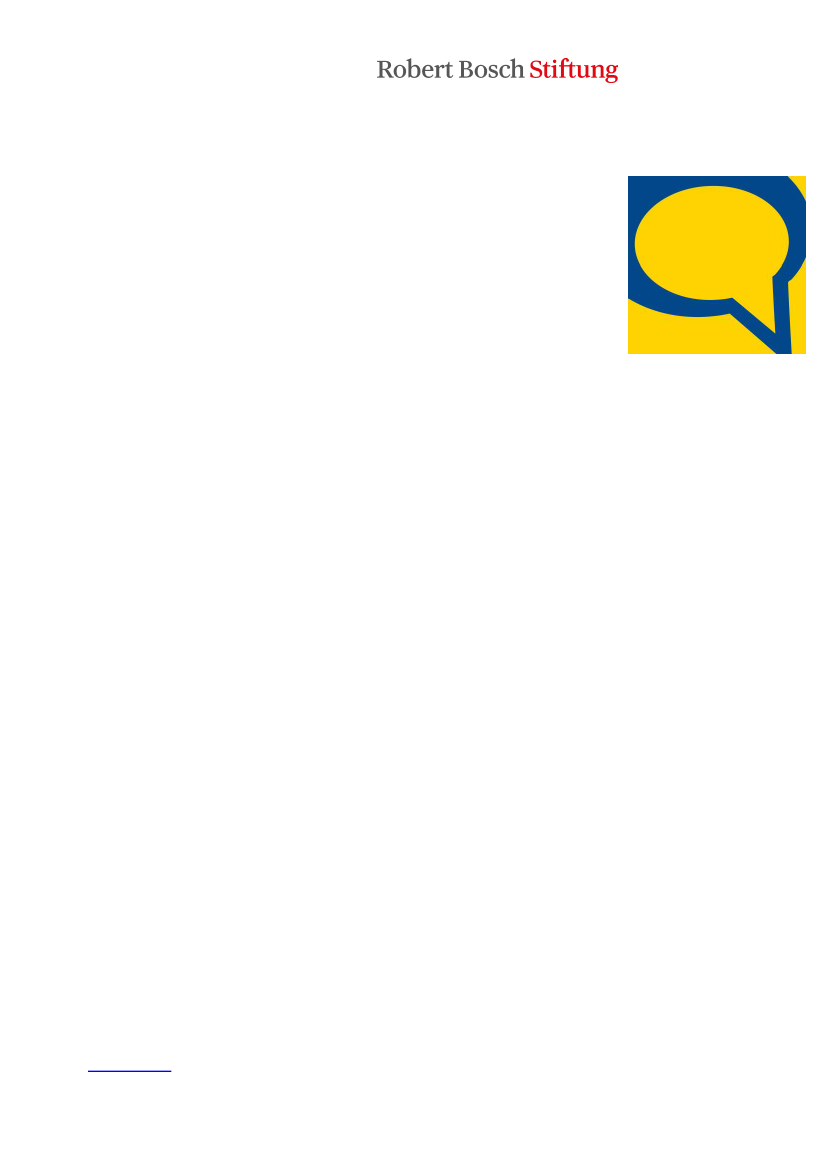
The EU Integration Forum 2015
Concept Note
Restoring faith in Democracy:
How to reverse the tide of Disillusionment and Disengagement?
Manchester, 24
th
-25
th
of September 2015
The EU Integration Forum is a ground-breaking initiative launched by the
Robert Bosch Stiftung to bring together some
80 young leaders from all 28
EU Members States and all levels of government
once a year to debate
the challenges facing the European Union, and to create an EU-wide network
of young leaders and thinkers committed to helping shape the Union’s future.
Now in its fifth year, the Forum has demonstrated its value as a
highly
interactive platform
for exchanging views on the
key issues facing the EU
now and in the future,
when Europe will be looking to this younger genera-
tion to provide the leadership and vision so desperately needed to meet the
many serious challenges confronting us.
This year, the Forum will focus on the crucial question of
how to restore faith
in democracy,
amid widespread evidence of public disillusionment with tradi-
tional political parties, political elites and policy-making processes in many EU
countries. In the wake of the economic, financial and social crisis which has
rocked Europe to its foundations, many people are turning instead to
‘anti-establishment’ parties, protest movements or away from politics alto-
gether - a trend which is already posing already major challenges to political
systems and political actors both in individual member states and across the
EU as a whole.
The Forum’s unique approach - bringing together young leaders from the
political, business, policy and think tank worlds, and from across the EU and
every level of government from the local and regional to the national and Eu-
ropean – in this highly interactive format will give participants the opportunity
to exchange views on this hugely important issue and consider how best to
reverse the tide and restore public confidence in politics and politicians, and
thus their faith in democracy.
The popularity of the Forum means that every year, it welcomes back partici-
pants from previous years as well as attracting new ones, so we do hope that
you will consider signing up to this year’s event via the Forum website:
www.euif.eu
“EU Integration Forum – Incentives
for the Union” is a project of the Rob-
ert Bosch Stiftung,
organised by IFOK GmbH
For more information, pictures and
to join the network, visit
www.euif.eu